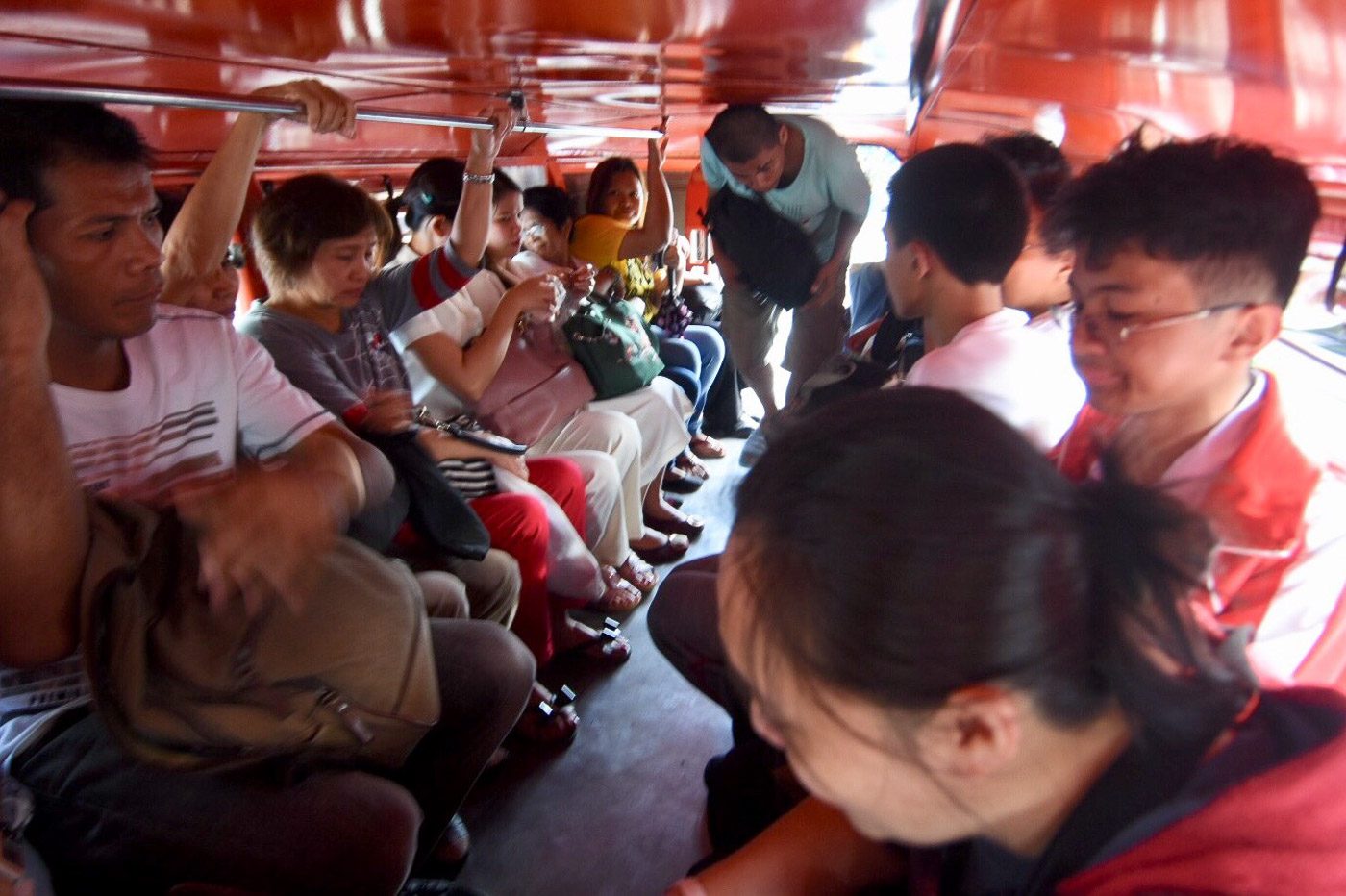SUMMARY
This is AI generated summarization, which may have errors. For context, always refer to the full article.

MANILA, Philippines – Land Transportation Franchising and Regulatory Board (LTFRB) Member Aileen Lizada noted that economic managers have warned of the inflationary effects of the higher-than-expected P2-hike in jeepney minimum fares.
In her dissenting opinion signed Wednesday, October 17, Lizada cited an October 2 letter from National Economic and Development Authority (NEDA) Undersecretary Rosemarie Edillon, suggesting a P9.50 minimum fare for public utility jeepneys (PUJ).
The LTFRB granted the PUJ drivers and operators’ petition back in September 2017, asking the LTFRB to increase the minimum fare to P10 in Metro Manila, Central Luzon, and Calabarzon, citing higher fuel prices.
According to NEDA, a P10 PUJ minimum fare would slightly push the annual inflation by 0.076 percentage points (ppt) in 2018 if implemented in October, and would contribute to “higher annual inflation” in 2019 by 0.221 ppt.
The country’s inflation rate rose to an average of 6.2% in the 3rd quarter of 2018, surpassing the forecast for 2018 that it would be within the range of 4.8% to 5.2%.
“NEDA’s alternative scenario of a lower fare adjustment for PUJs is estimated to result in an additional 0.05 [ppt] to inflation in 2018 and about 0.146 ppt in 2019,” Lizada said.
Lizada asked the regulatory board members to suspend the release of the fare hike decision on Wednesday. She argued that more time was needed to discuss the inflationary effects of the hike, but this was denied by the Board.
“Let it be stressed that the Board received NEDA’s guidance on October 2, or 15 days from date [of the fare hike decision]. The haste in arriving at a decision with only one board meeting, by a majority of the board, after receipt of the said guidance does not bode well for the 4,000,000 riders of the PUJ, and eventually the drivers themselves,” Lizada said.
“We owe them a more judicious and more thorough discussion and we need to trust the other government agencies that they are doing their best to address the situation,” she added.
Cheaper oil for PUJ drivers
Lizada also noted the importation of cheaper fuel for public utility vehicle (PUV) drivers, with the release of the Philippine National Oil Company-Exploration Corporation (PNOC-EC) Board’s decision to buy oil from traders in Singapore.
This is expected to bring in a trial 50,000 metric tons of 59 million liters of diesel, at P5 to P6 cheaper than the market price. The latest price increase pushes diesel to hover around P47.95 to P50.75 per liter.
“The undersigned in her memorandum strongly suggested that the Board await the decision of the (PNOC-EC) on the importation of the diesel from Singapore, as this might further strengthen NEDA’s alternative fare hike scenario…This is another mitigating measure being resorted to by government to lower the fuel pump price,” Lizada said.
Domino effect?
On the part of the consumers, Laban Konsyumer Inc president Vic Dimaguiba said that Filipinos would bear the brunt of the increase.
“[There will be] continuing erosions [of purchasing power]. Inflation shall remain unabated. In September, transportation inflation contributed 8 ppt to the national 6.7% [inflation rate]. Could be higher this month,” Dimaguiba – who used to be a trade undersecretary – told Rappler.
With the erosion of purchasing power, Lizada said this would eventually bring stronger calls for wage hike from the government. (READ: Labor group to Duterte: Hike wages amid shrinking purchasing power)
True enough, labor groups have lauded the fare increase but also reminded the government to raise the minimum wage in Metro Manila. (READ: Diokno: ‘Let’s not push for higher wages’ amid high inflation)
“With the fare increase, there is now a very urgent need for the Metro Manila wage board to grant a substantial wage increase for workers in the NCR (National Capital Region) for them to survive in the light of the extraordinary increases in prices of basic goods and costs of services in the past 10 months, including this P1 jeepney fare increase,” said Alan Tanjusay, spokesperson of Associated Labor Unions-Trade Union Congress of the Philippines.
The wage order that sets the minimum wage at P512 in the capital region has expired earlier this month. The labor department said that Metro Manila minimum wage earners can expect at least a P20 increase in their daily pay soon.– Rappler.com
Add a comment
How does this make you feel?
There are no comments yet. Add your comment to start the conversation.